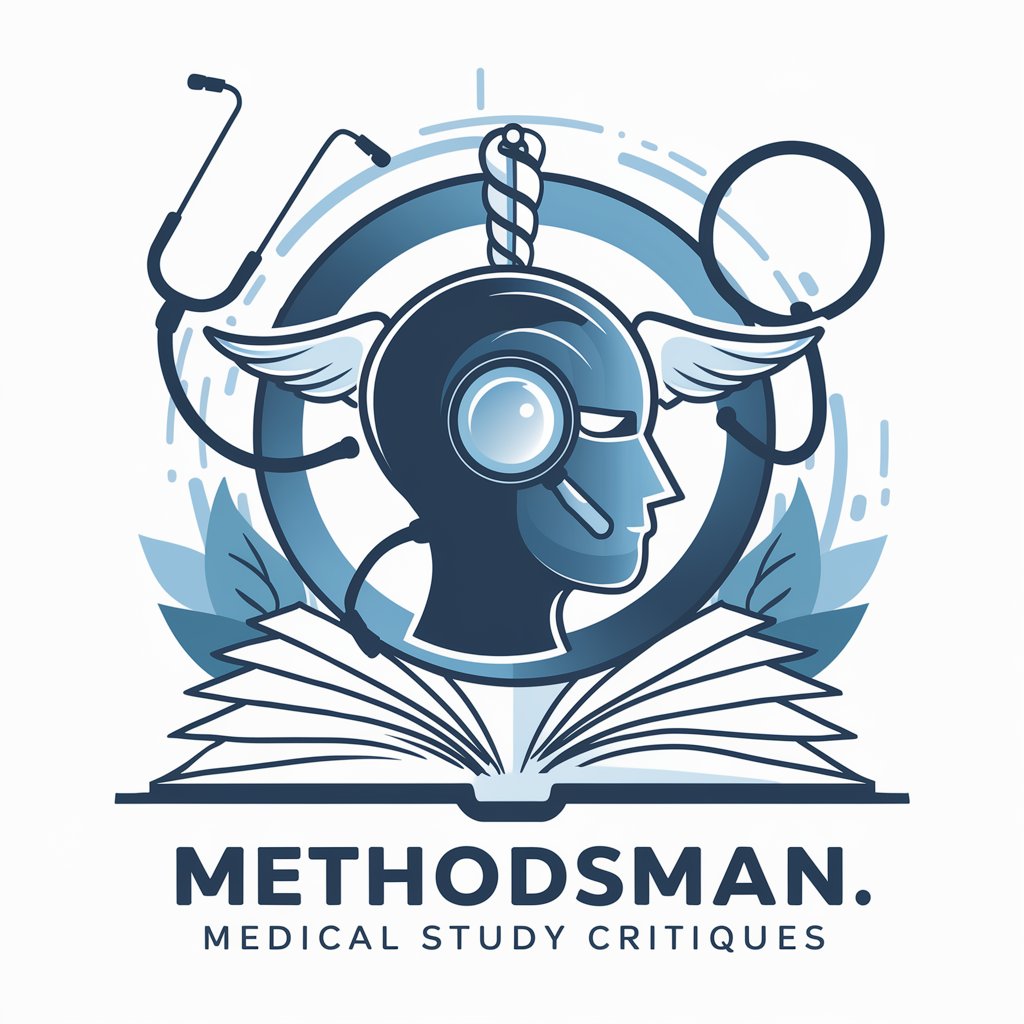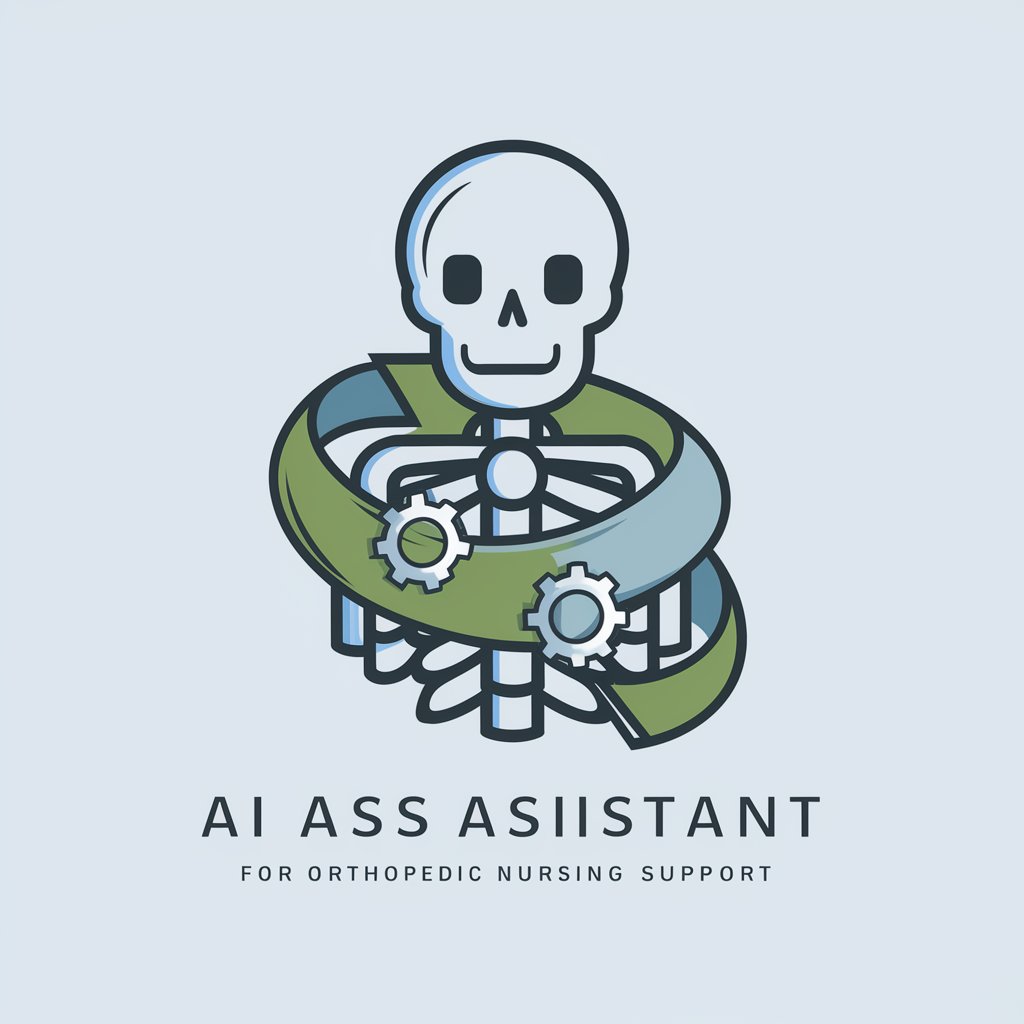13 GPTs for Evidence-Based Practice Powered by AI for Free of 2025
AI GPTs for Evidence-Based Practice refer to specialized applications of Generative Pre-trained Transformers tailored for tasks in evidence-based domains. These tools are designed to assist in collecting, evaluating, and applying empirical data and research findings to make informed decisions. By leveraging the advanced capabilities of GPTs, users can access customized solutions that enhance the reliability and efficiency of practices grounded in solid evidence.
Top 10 GPTs for Evidence-Based Practice are: CASP GPT,Case Study Assessor,MethodsMan: Medical Study Critiques,AI-clinicalGCP,Clinical Mentor GPT,SenpAI,Charlie HOAC Expert,🏥 Intensive Insights CareGPT 🩺,Nursing AI Assistant,Orthopedic Nurse
CASP GPT
Empowering Research with AI Insight

Case Study Assessor
Elevate Your Research with AI-Driven Insights

MethodsMan: Medical Study Critiques
Unveiling the insights of medical research

AI-clinicalGCP
Empowering Healthcare with AI-Driven Insights

Clinical Mentor GPT
Empowering Healthcare Professionals with AI

SenpAI
Empowering Physiotherapists with AI

Charlie HOAC Expert
Empowering Physiotherapy with AI

🏥 Intensive Insights CareGPT 🩺
AI-powered critical care insights at your fingertips.

Nursing AI Assistant
Empowering Nursing with AI Insights

Orthopedic Nurse
Empowering Orthopedic Nurses with AI

Talent: IF INTERESTED
Elevate HR with science-backed critical analysis

Autoimmune Diseases GPT
Empowering autoimmune disease management with AI

Collaborative Nursing Coach
AI-enhanced Clinical Decision Support

Key Attributes of AI GPTs in Evidence-Based Domains
AI GPTs for Evidence-Based Practice stand out due to their adaptability across a range of tasks, from data synthesis to complex analytical functions. These tools often include advanced language understanding for parsing scientific literature, technical support for integrating with databases, web searching capabilities for the latest studies, image creation for data visualization, and sophisticated data analysis features. Such versatility ensures that evidence-based practitioners can leverage AI for comprehensive insights.
Intended Users of AI GPTs in Evidence-Based Fields
AI GPTs for Evidence-Based Practice are invaluable to a wide audience, including researchers, healthcare professionals, policy makers, and even students in evidence-based disciplines. These tools are designed to be user-friendly for those without technical backgrounds, while also offering advanced customization for tech-savvy users, thus democratizing access to evidence-based solutions.
Try Our other AI GPTs tools for Free
Expression Understanding
Discover AI GPTs for Expression Understanding, your gateway to interpreting human expressions with unparalleled accuracy. Revolutionize communication and emotional analysis with advanced AI technology.
Positive Parenting
Discover AI GPT tools for Positive Parenting: innovative, user-friendly solutions for effective parenting strategies and child development, adaptable to various needs and skills.
Parental Well-being
Discover how AI GPTs for Parental Well-being can transform parenting with tailored advice and support, designed for parents and guardians at any stage.
Practice Questions
Discover how AI GPTs for Practice Questions can transform your learning experience with dynamic, personalized content designed to enhance understanding and retention.
Custom Schedules
Discover how AI GPTs for Custom Schedules revolutionize planning with personalized, adaptable, and intelligent scheduling solutions for all.
Home Remedies
Explore AI-driven natural treatment suggestions with our comprehensive guide on AI GPTs for Home Remedies, tailored for both novices and professionals.
Enhancing Evidence-Based Practices with AI GPTs
AI GPTs revolutionize evidence-based sectors by providing user-friendly platforms that simplify complex data analysis and research processes. Their ability to integrate with existing workflows and adapt to various functions makes them indispensable tools for professionals seeking to base their decisions on solid empirical evidence.
Frequently Asked Questions
What exactly are AI GPTs for Evidence-Based Practice?
They are specialized AI tools designed to assist in tasks specific to evidence-based disciplines, leveraging the power of GPTs for data-driven decision-making.
How can these AI GPTs tools enhance evidence-based practices?
By automating data synthesis, analysis, and application processes, these tools can significantly enhance the efficiency, accuracy, and reliability of evidence-based practices.
Are AI GPTs accessible to individuals without programming skills?
Yes, many of these tools are designed with user-friendly interfaces that do not require programming expertise, making them accessible to a broader audience.
Can professionals customize these AI GPTs to suit specific needs?
Absolutely, many AI GPTs offer customization options allowing professionals to tailor the tools to specific tasks or research requirements.
What kind of data can AI GPTs for Evidence-Based Practice handle?
These tools can process a wide range of data types, including textual data from research papers, quantitative data from studies, and even complex datasets.
How do AI GPTs ensure the reliability of the evidence they generate?
AI GPTs incorporate advanced algorithms and methodologies to verify the credibility of sources and the validity of data, ensuring high-quality evidence generation.
Can these tools be integrated with existing databases and systems?
Yes, many AI GPTs are designed with interoperability in mind, allowing for seamless integration with existing databases, research tools, and systems.
What sectors within evidence-based practice benefit most from AI GPTs?
Sectors such as healthcare, public policy, education, and social sciences find great value in AI GPTs for synthesizing research, informing policy decisions, and enhancing educational practices.